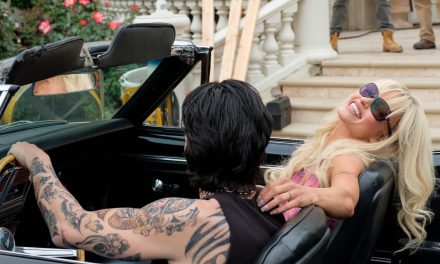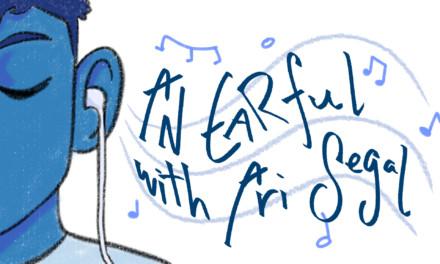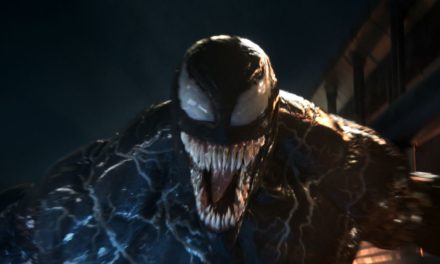Fans of 007 old and new are going to be satisfied with this latest installation of the timeless franchise. “Skyfall” strikes a balance between what was wrong with its predecessor, “Quantum of Solace” (Marc Forster), and what was sometimes overdone by classic Bond films like those of Sean Connery.
This third adaptation starring Daniel Craig as James Bond, however, may fall slightly short of the high expectations, despite giving viewers a whirlwind of high-powered action sequences. Thanks to the talented direction of Sam Mendes (“Revolutionary Road”), the ultimate spy flits from pleasure to action seamlessly throughout the film.
The film begins in medias res with Bond trying to recover a hard drive that contains a list of every undercover NATO operative working within terrorist organizations.
Whoever has stolen the information begins to taunt M, Bond’s boss, played by the stern-eyed Judi Dench (“The Best Exotic Marigold Hotel”), against whom this villain apparently has a grudge. It is up to Bond to track down and apprehend this mastermind criminal, Silva, played by Javier Bardem (“Eat Pray Love”).
However, the raised stakes strike an intimate chord with Bond once M’s life is at risk. Now, Bond must stop him before he loses one of the few – or maybe the only – person that he cares about, all while M defends MI6 and her position as director against bureaucratic shortsight.
Several additions to “Skyfall” made the film work as both a Bond film and as a modern action flick. First is the return of Q (Ben Whishaw, “Cloud Atlas”) as Bond’s source of slick spy gadgets. Q is an employee of MI6, but is not a field operative. He works in the tech division, aiding Bond as he travels the world shooting first and asking questions later. In this sense, Bond has become a bit traditional – and as the British government suggests – outdated. The two are played off each other to contrast the old and new ways of espionage and the merits that both possess.
Q is adapted to the 21st century now, as his primary purpose is to make MI6 as technologically savvy as those they’re fighting. The gadgetry, while sleek, remains realistically grounded. For example, Q gives Bond a pistol that only Bond can fire because it is activated by his unique palm print. Despite his more modern role, the return of Q, who was part of what made the classic 007 movies so entertaining, is more than welcome.
However enthralling crazy gadgets may be, the Bond villains are what make the 007 films, and this is where “Skyfall” simultaneously makes its mark as a memorable Bond movie, but also makes one of its gravest errors.
Bardem’s chilling yet playful performance as the computer-hacking mastermind Silva will surely go down as one of the most riveting characters of the franchise. After his equally spine-tingling role in “No Country for Old Men” (Joel and Ethan Coen) it seems as though the bad guy may be Bardem’s calling. For that reason, the lack of screen time allotted for Bardem was disappointing. The scenes featuring Silva were some of the best in the movie and it was a poor decision to include just a few of them. Bardem manages to make the viewer laugh, but at the same time become anxious, and when he appears, he overshadows those who share the stage by way of his engrossing performance.
That said, the other performances should not be ignored. The masterful Dench is as powerful as ever, conveying intense fear, regret and an inextinguishable burning to do her duty as she sees it, and Craig continues to show his talent for portraying the iconic spy.
The writing also manages to strike that healthy balance between old Bond and new, but is sometimes overdone with the quips and snappy comebacks that pervade throughout the movie. This is most noticeable during the conversations between Bond and Eve (Naomie Harris, Ninja Assassin), Bond’s colleague and love interest. This kind of exaggerated writing was lost in Quantum of Solace, and definitely added the much needed old school 007 feel, but it was too frequent, to the point where it became obvious.
One aspect of the film that does not come with any qualifications is the beauty of the cinematography. Many of the scenes looked striking and were a visual pleasure. Scenes set in Shanghai are the pinnacle of this spectacular camera and lighting work, utilizing color tints and mirrors to draw the viewer in and to enhance the tension of the scenes. The most impressive part of this dazzling photography is that it is not overbearing. It is apparent and certainly noticeable, but is not so blunt as to distract from the action. One would expect such captivating cinematography from Roger Deakins though, the director of photography for such wonderfully filmed movies as The Shawshank Redemption and The Assassination of Jesse James by the Coward Robert Ford.
In the end, Mendes manages to move away from the dry action of Quantum of Solace and towards the sillness of classic Bond cinematography. He does not move totally in the other direction however, and achieves a crucial balance that the franchise has needed.
For 007 to be relevant, it had to adapt to the times, and that it does. But at the same time, it’s not Bond if it’s not at least a little over the top, both in characterization and plot. Skyfall may not be quite as commendable as the first adaptation starring Craig, Casino Royale (Martin Campbell), but it is conscious of its roots, which make the name James Bond so iconic, while not forgetting to acknowledge that it has new audiences to please.
– By Eric Frank
The Emory Wheel was founded in 1919 and is currently the only independent, student-run newspaper of Emory University. The Wheel publishes weekly on Wednesdays during the academic year, except during University holidays and scheduled publication intermissions.
The Wheel is financially and editorially independent from the University. All of its content is generated by the Wheel’s more than 100 student staff members and contributing writers, and its printing costs are covered by profits from self-generated advertising sales.






